Nigeria: Facts and figures, 2015
… medical care and restore contact between family members separated by the conflict. … support to 700 IDPs at a camp in Yola . Restoring family links Hundreds of thousands of people have left …
… medical care and restore contact between family members separated by the conflict. … support to 700 IDPs at a camp in Yola . Restoring family links Hundreds of thousands of people have left …
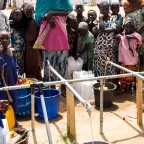
… Delivering effective and efficient Restoring Family Links (RFL) services requires the processing of …
… messages; strengthened the Mali Red Cross family links service, which organized 2,272 telephone …
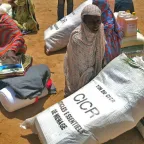
… and traces, restores contact or reunites family members who got separated or went … who are separated by disaster or migration. Family members who are searching for loved ones … information about our work to restore family links, visit www.familylinks.icrc.org For more …
… activities are focused on using our Family Links network to restore contact between … the most vulnerable migrants. Using our Restoring Family Links network to help migrants …
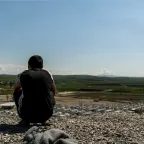
… few weeks ago, it lived up to its name as a family who had been separated for 44 years were … The Ndou family pictured with the ICRC's Restoring Family Links field officer Unita Ndou after the …
… staff, patients and their accompanying family members, to ensure the medical team … of banking services. Protection of Family Links (PFL) In the past …
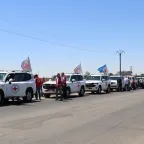
… and migrant returnees who could exchange family news with their relatives. 46,400 … for 400 detainees in two prisons in Tigray. Restoring family links – 11,973 people assisted In 2015, The …
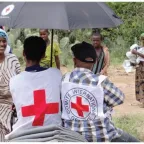
… Red Cross Society (ERCS) to restore family links and provide assistance to people … Red Cross Society (ERCS) to restore family links among people separated by armed …
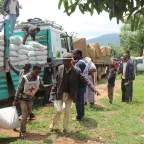
… It's devastating for family and friends when a loved one disappears. … up for our newsletter The ICRC's role in restoring family links The ICRC's Central Tracing Agency …

Try one of the following resources:
Created in 1863, the ICRC library, alongside the ICRC archives, provides an indispensable documentary reference on the organization itself and international humanitarian law.
International humanitarian law is based on a number of treaties, in particular the Geneva Conventions of 1949 and their Additional Protocols, and a series of other instruments.
Customary international humanitarian law consists of rules that come from "a general practice accepted as law" and that exist independent of treaty law.